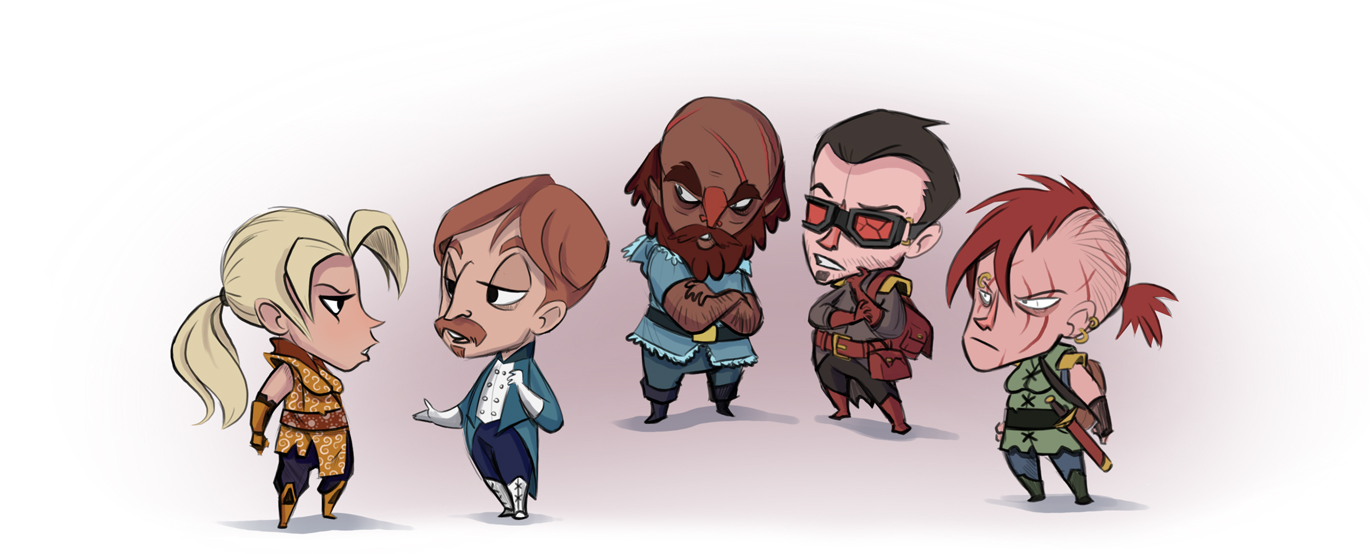Trending
Opinion: How will Project 2025 impact game developers?
The Heritage Foundation's manifesto for the possible next administration could do great harm to many, including large portions of the game development community.

Featured Blog | This community-written post highlights the best of what the game industry has to offer. Read more like it on the Game Developer Blogs or learn how to Submit Your Own Blog Post
A common concern about the Hero Generations concept is that the "1 Turn = 1 Year of Life" rule in Hero Generations feels limiting. This article explains how the rule came about and why it leads to long term fun, thoughtful, and strategic gameplay.

The most common concern expressed about the Hero Generations concept is that the "1 Turn = 1 Year of Life" rule feels limiting. How are you supposed to get anything done in that amount of time? This short article hopes to answer that question, and explain why that constraint leads to fun gameplay and drives interest in the game over the long term.
Very simply, rules and constraints in games are the engine that create challenge and choice. Making choices, and overcoming challenges are what lead to fun, "a-ha" moments and joy. In Hero Generations, making your limited lifespan be a precious resource leads to a more thoughtful style of play. Turns still happen very quickly, but understanding the cost of each moves leads you to think strategically about the path you are charting.
Consider the alternative: if we were to remove this constraint and say that there was no death, and no limit to the amount of years you could live, the moment-to-moment gameplay would have a very different focus. You would not care about the actions you take because there would be no consequence, and you would be able to achieve most goals in the game without having to think.

So a huge part of the game is all about overcoming the constraint of time, by either giving yourself more years to play with, or finding a way to make the value of each year more worthwhile. Just as our ancestors had less technology and knowledge about the world, so too are the heroes of your early generations in the game. By investing in new knowledge and exploring, you set up future generations to be more efficient.

Here are a few of the ways you can overcome this constraint, and give your heroes more freedom and efficiency in what they can achieve:
Add More Years: By choosing the right mates, your children can earn bonuses that let them start with more years (up to 125 years).
Boost Starting Stats: Through mating, your children can begin with higher starting strength, gold, and damage. This allows them to achieve more things earlier in the game, making their life more likely to be a success.
Earn Traits and Acquire Items: Traits are special abilities that give you stat bonuses or special abilities. Items do the same, though they can be swapped out. This added capability allows you to conquer challenges that were out of reach, or explore paths that were previously inaccessible.
Build: Buildings offer permanent bonuses and resources that you would otherwise not have access to. Over time, these buildings add up to allow your hero to further accelerate their growth.
Roads and Fast Travel: There are buildings and world objects (stations, airships, bridges, etc) that alter how quickly you can navigate the world. You can create roads between towns that let you warp between them in just 1 year. Much further down the timeline, you can jump in an airship, which will transport you to an entirely new world in a single year. If you took the time in past generations to setup these paths, future generations will be able to accomplish more.
Exploration: By exploring the world, and revealing where things are underneath the clouds, you will spend less time wandering aimlessly in future generations.
Conclusion
You can choose to ignore this investment in future generations, and try to maximize the years you have left completing quests. But as you can see, finding a balance can lead to an easier time down the road. The growth curve is not unlike 4X Strategy games like Civilization or Master of Magic. In the early going, you have little technology, and you spend much of your time exploring the world. But over time you start to acquire power and knowledge, and then can work to achieve more fame.
So yes, in isolation I understand the concern about how limiting losing 1 year of life can seem. But in practice, this rule is the engine that drives all strategy and long term gameplay interest/replayability, and creates the thoughtful experience I think suits the game goals best.
(Hero Generations is now on Kickstarter: http://kck.st/1fXPM7J)
Read more about:
Featured BlogsYou May Also Like